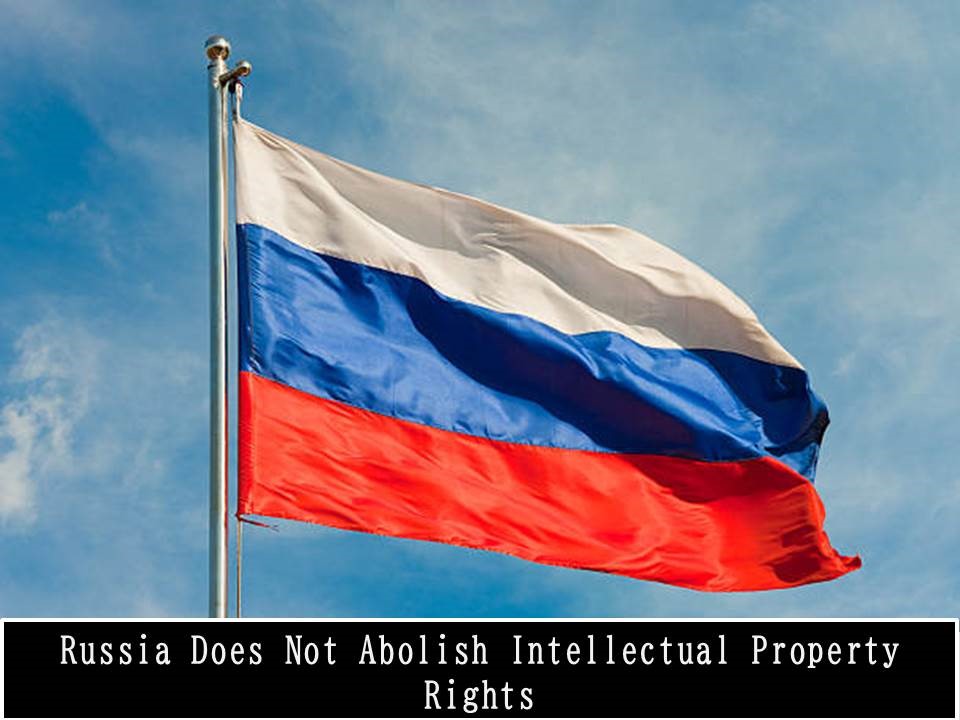Some Russian and foreign media outlets have published articles claiming that the Russian government has issued a resolution eliminating payment for patent infringement by patent holders from certain nations. Actually, the Government adopted Decree No. 299 on March 6, 2022, amending the Methods for Determining a Remuneration to Be Paid to a Patent Holder When the Government Decides on the Use of an Invention, a Utility Model, or an Industrial Design without the Patent Holder’s Consent (the “Methods”).
It is important to note that this only applies to circumstances in which the Russian government has granted permission to use the inventions described in Article 1360 of the Russian Civil Code (for example: in extreme urgency related to the defense and security of the state and to the protection of the population’s life and health). This article provides that a patent holder should be paid a sufficient remuneration when such an authorisation is issued, the means for assessing which must be approved by the Russian government. TRIPS, an international pact, allows for the issuance of such compulsory licenses (Article 31).
In Russia, just three such official licenses were issued (in 2020, 2021, and 2022). And they’re all linked to the usage of multiple Gilead Group patents for inventions utilized in the production of Remdesivir, which is used to treat COVID-19.
On October 18, 2021, the Government approved the Methods for Determining Remuneration (Decree No. 1767), which stated that when the Government issues a compulsory license, the right holder should receive 0.5 percent of the revenues received from the use of the patented invention, utility model, or industrial design by the person to whom such a “government licence” is issued.
The first two “government licenses” (in 2020 and 2021) were awarded subject to the payment of payments to patent holders. In fact, there is no remuneration associated with the issuance of the third license (Order of the Government No. 429-r dated 5 March 2022); and the Methods for Determining a Remuneration are amended so that, for the patent holders from countries that commit unfriendly acts against Russian individuals and legal entities, “the remuneration is 0% of the revenues…”.
Of course, one could argue that such a decision by the Russian government violates neither Article 1360 of the Russian Civil Code nor Article 31 of the TRIPS Agreement, which both require adequate recompense to be paid. The aforesaid idea of government authorizations, on the other hand, has no bearing on the rules of the Russian Civil Code, which allow for the enforcement of the exclusive patent right, including the recovery of the remuneration stipulated in Article 1406.1 of the Russian Civil Code.

The government authorizations only provide specific companies the authority to use a patent without the patent holder’s consent. As a result, a patent holder can successfully defend his or her rights against all other competitors who have not secured such official authorizations, including recouping damages for patent infringement. The court may award such remuneration not only in cases of patent infringement, but also in cases of infringement of other rights. Also, in the media and on the Internet, there is a heated discussion of the “Russian Government’s proposal” to allow the pirated use of the software owned by foreign right holders.
This statement is also false: the Russian government has not put out such a proposal
Due to the imposition of anti-Russian sanctions by a number of foreign countries, as well as the decisions of individual companies, including IT businesses, to stop selling and supporting their software products in Russia, the government is currently discussing possible countermeasures with stakeholders.
One draft Action Plan, which has come into the hands of the media, includes a proposal to abolish criminal and administrative liability for “piracy” of computer programs. The designated Russian ministry (the Ministry of Digital Development, Communications and Mass Media) and the designated Russian IT groups, however, oppose this idea. These recommendations were not debated at Government sessions where anti-crisis measures were discussed, and they are not included in the latest draft Action Plan.
In fact, a proposal to implement a “compulsory licensing mechanism” for computer applications is still included in the draft Action Plan. Possible limitations and exceptions to copyrights, on the other hand, are already provided for in clause 5 of Article 1229 of the Russian Civil Code, and are permitted under Article 13 of the TRIPS Agreement. Both of these norms indicate that exclusive copyright limitations or exceptions are limited to certain unique instances that do not conflict with routine utilization of the work and do not unfairly impair the right holder’s legitimate interests.
You can see a list Russia IP firms here.
